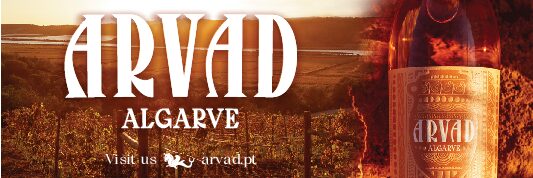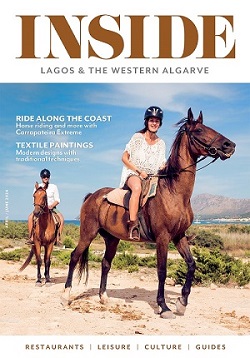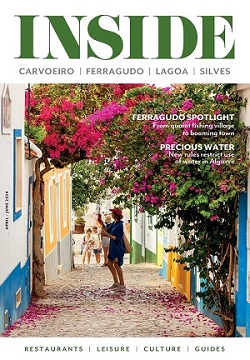There’s more to the Portuguese guitar than fado, says master player and teacher José Alegre
José Alegre says he never planned to become a musician: “It just happened. Music chose and surrounded me,” he said, smiling. But it was José who chose the Portuguese guitar and made it into his instrument of choice. “It is the most important thing in my life, my partner, the box where I keep my dreams.”
There were no music schools in his hometown of Alcácer do Sal, so José had to learn to play the guitar by himself. He moved to Faro to study marine biology and also enrolled in classical guitar lessons at the regional music conservatory. Between his music lessons and performances, there wasn’t much time left for marine biology, so he dropped out of university a year later and dedicated himself to music.
His innate talent made it easy for him to learn not only the Portuguese guitar but also other traditional string-instruments like the cavaquinho (a small guitar, similar to the ukulele) or the viola braguesa (a guitar with 10 strings in five courses, popular in the Portuguese northwest).
“Back then, I already had a Portuguese guitar, but I didn’t dare play such a special instrument,” recalls the musician. He was always curious about the Portuguese cittern, but also very respectful of it. “You have to be authentic when playing it,” José states.
“The great turning point”, as he puts it, happened in 2002. Miguel Drago, a renowned Portuguese guitar player, who was originally from Vila Real de Santo António, returned to the region. “When I was offered the opportunity to learn from such a virtuous and authentic musician, I didn’t have to think twice,” explains José, adding that he owes Miguel, who sadly passed away in 2015, everything he knows.
In 2005, José took lessons from guitarist and composer Pedro Caldeira Cabral, one of the great masters of the Portuguese guitar. Three years later, he enrolled in the first nationwide degree on the Portuguese guitar at the Superior School for Applied Arts in Castelo Branco. He proudly adds that he was the first student to complete the course.
Now he passes down his knowledge to young talents in the music academies of Loulé, Portimão, Lagoa and Lagos. When asked what makes the Portuguese guitar so special, he answers with another question: “What makes it so special for people who have never seen the instrument before?”
He has played in countries where this 12-string instrument isn’t known and “as soon as I take it out of the case, it catches everybody’s attention”. And there’s also its incomparable sound. “The Portuguese guitar has enormous power and its sound touches your heart.”
When asked to describe his style, José says: “My roots lie in fado, my heart belongs to rock, but I am open to all sounds of the world.” Fado is his foundation, but his passion is to incorporate the Portuguese guitar into other genres, especially international music. As part of the group TerraXama, José Alegre, Rui Afonso (percussion) and Cátia Alhandra (vocals) mix sounds from the Christian, Jewish and Muslim cultures. “Music from the melting pot of cultures that was the Iberian Peninsula in the Middle Ages,” explains José. Another of his projects is the Fad´Nu group, which is now working on its first album, dedicated to a new interpretation of fado.
José also performs as a soloist, which brings him great joy because while in fado the Portuguese guitar is used alongside classical guitar and “remains in the shadow” compared to the vocals, in solo concerts the instrument takes the spotlight. “It’s at the heart of the concert, where it belongs, and the audience has the opportunity to discover its unique sound,” José explains enthusiastically.
Traditionally, the Portuguese guitar is an instrument played by men, but more and more women are developing an interest in it. Half of José’s teenage students are girls. Some of them chose this instrument because they’re interested in fado, but most of them had their first contact with the Portuguese guitar at the music school’s Open Day, where students can try every instrument. “Each student has 15 minutes to try each instrument, and many are immediately impressed by the sound of the Portuguese guitar and fall in love with it,” he explains. According to the musician, if there were more teachers, there would also be more students, but there’s a limited number of vacancies.
José will take to the stage with TerraXama at the Algarve (In)temporal festival, in Silves, on October 13.
Facebook: Jose Alegre Guitarra Portuguesa
Text & Photos: Anabela Gaspar














